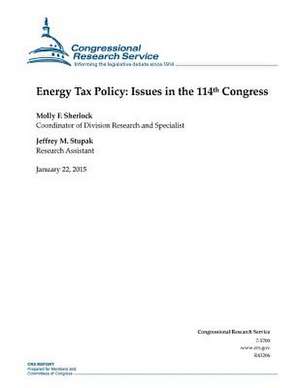Energy Tax Policy
Autor Congressional Research Serviceen Paperback
Preț: 122.84 lei
Nou
Puncte Express: 184
Preț estimativ în valută:
23.51€ • 24.23$ • 19.85£
23.51€ • 24.23$ • 19.85£
Carte disponibilă
Livrare economică 10-24 februarie
Preluare comenzi: 021 569.72.76
Specificații
ISBN-13: 9781507735930
ISBN-10: 1507735936
Pagini: 32
Dimensiuni: 216 x 279 x 2 mm
Greutate: 0.1 kg
Editura: CREATESPACE
ISBN-10: 1507735936
Pagini: 32
Dimensiuni: 216 x 279 x 2 mm
Greutate: 0.1 kg
Editura: CREATESPACE
